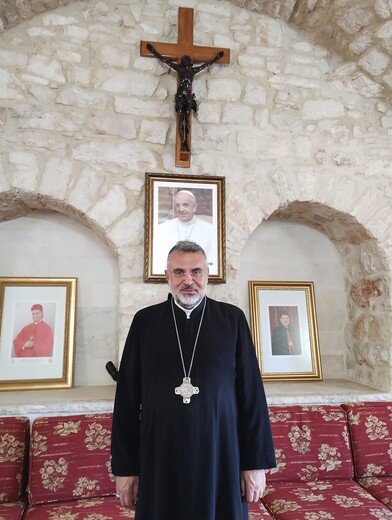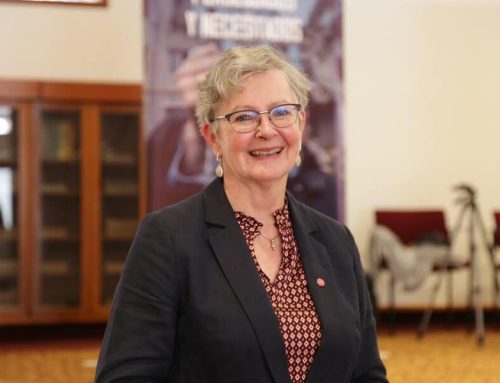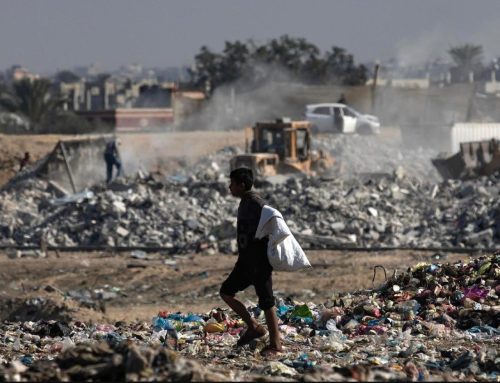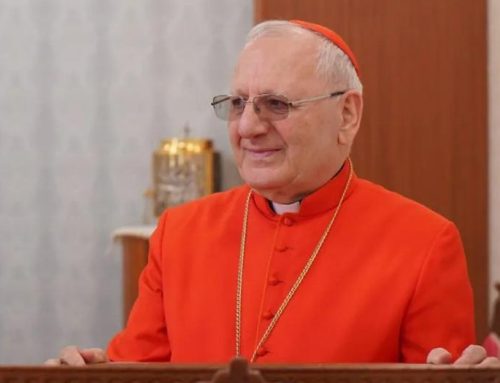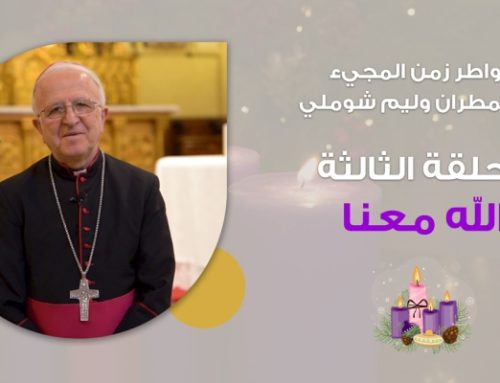In the Archdiocese of Tripoli, Lebanon, where Christians now make up only two per cent of the population, the Church is actively promoting interreligious dialogue with Muslims, said the Maronite Archbishop of Tripoli, Mgr Youssef Soueif. During a meeting with a visiting delegation from the Pontifical Foundation Aid to the Church in Need, he spoke about the challenges the economic situation in the country poses to the archdiocese.
“There are many challenges which you cannot solve at the writing table. In Tripoli, interreligious dialogue does not happen at the table but in daily life. Our task is to be the light of the world in the sense that we are present on the ground,” said the Maronite archbishop.
Tripoli, which lies in the north, is the second largest and, at the same time, one of the poorest cities in the country. Whereas in Lebanon as a whole, Shiites are the largest religious group, in Tripoli, Sunnis are in the majority. The number of Christians, on the other hand, is very small: according to Archbishop Soueif, in Tripoli before the Lebanese civil war (1975-1990), they accounted for 30 per cent of the population, but now that figure stands at just 2 per cent.
Schools at the heart of the mission
Yet these two per cent make a difference, according to the archbishop: “We have 16 schools with 6,500 pupils in overwhelmingly Muslim regions. We transmit a message of peace, of forgiveness and of love. The Muslims here want this message! They send their children to our schools because they want them to grow up in such an environment.”
Schools are, therefore, the main area of pastoral work in the archdiocese. “Schools are the heart of our mission! They are the place where the good news is proclaimed. Our way of life attracts people. We must pass on the Christian message to them. Without proselytising, however. We respect the faith of others, but also offer them our faith.” The radiance of the Christian message is great, and there are frequent requests for baptism. “Almost every week, I sign my agreement for the baptism of a convert,” the archbishop explained. “Our constitution defends freedom of conscience and the right to convert. This is unique in this region.”
Building a Culture of Peace In a Message to all the Bishops of the Catholic Church on the Situation in Lebanon in 1989, Pope John Paul II made it clear that the disappearance of Lebanon would be a tragedy, saying, “Lebanon is more than a country. It is a message of freedom and an example of pluralism”. In his meeting with representatives of ACN, Archbishop Soueif confirmed this: “The Muslims want to have us here! They often say to us: ‘Only together with you can we bring out the full identity of Lebanon.’”
In Tripoli, the Church is building a culture of peace with the Muslims, a culture in which differences between people will be accepted. Yet this task, like the rest of the pastoral work in the archdiocese, has for a long time been put to a hard test. Since the beginning of the economic crisis in 2019, priests in Lebanon have been struggling to survive. “In Lebanon, priests do not receive any salary from the Church. They normally get their living through the collections and the gifts of the faithful. Yet, since the crisis, the Sunday collections come to less than 10 dollars. They can’t live on that – especially not our married priests, who in the end have to feed their families,” said the archbishop, referring to the Maronite Catholic Church, which is in full communion with Rome and which maintains the ancient Eastern tradition of ordaining married men to the priesthood.
The Archdiocese of Tripoli has 120 priests, 90 percent in rural areas. Due to the frequent lack of money and fuel, priests are often unable to visit their parishes.
Working against emigration
Alongside the priests, families, young couples and young people also lie close to the archbishop’s heart. Their witness to faith is needed in Tripoli. Since the Church in Lebanon owns land, the Maronite archdiocese is now trying to make this fruitful in order to become financially more independent, to sell its produce to the local population more cheaply and to create jobs for 200 Christians in the area. In doing so, it hopes to be able to combat the emigration of Christians.
ACN has been supporting the Archdiocese of Tripoli for many years. In 2023, it helped to provide Mass stipends – ensuring the daily survival of priests – and health insurance for 116 priests. The charity also contributes to priestly formation.
By Sina Hartert | acnireland.org

